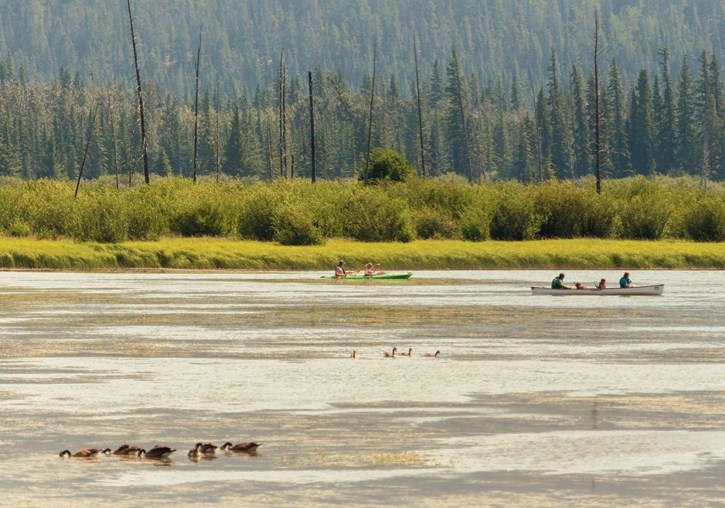It’s damn hot…so damn hot.
According to Environment Canada, July was one of the hottest months for Banff and Canmore on record over the past 130 years, with continued and sustained above average temperatures.
Banff recorded the 12th warmest July since records were kept – dating back to 1887. This year was the warmest July since 2014, while 2002 and 2007 are tied for the hottest on record.
Kirk Torneby, meteorologist with Environment Canada, said the 30-year average for July in Banff is 14.6 C, whereas this year the average temperature throughout July was 16.2.
The hottest day was July 7 when the mercury soared to 31.4. The hottest July 7 on record before this year was 29.4 in 1906.
“Temperatures are significantly above average. It’s notably warm, that’s for sure,” said Torneby. “There’s been an extended warm spell and a lot of high temperatures recorded.”
A persistent dome of warm air has parked itself over southern B.C., Alberta and Saskatchewan for most of July – and the seasonal forecast shows above average temperatures continuing in August.
“The records in July are right along the U.S. border and up the mountains through Banff in terms of warmest temperatures,” said Torneby.
Not only has Banff been warm, it’s also been incredibly dry.
Torneby said 18 millimetres of precipitation was recorded in July, compared to the July average of 54.2 mm.
He said this was the 16th driest July on record, noting the all-time maximum July rainfall was 144.8 in 1903.
“It’s thunderstorm season and it’s always hit and miss,” he said. “You either get drenched or nothing.”
Scientific research indicates Alberta’s provincial mean annual temperature has increased by 1.4 C over the past 100 years, with much of that increase occurring since the 1970s from increases in winter and spring temperatures.
The trend is projected to continue over the next 50 to 100 years. Alberta’s mean annual temperature could increase by at least 2 C by the end of the century, possibly as high as 4-6 C higher, according to projections.
In addition, climate change is also expected to bring more extreme weather events throughout Alberta, including heavy rainfalls and very dry years predicted to become much more frequent.




